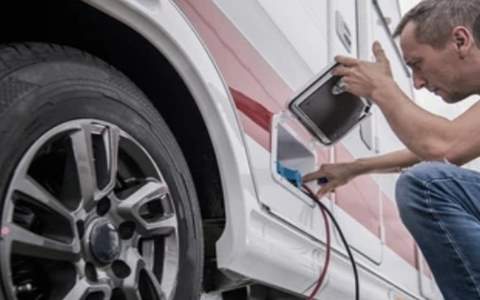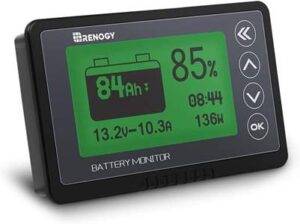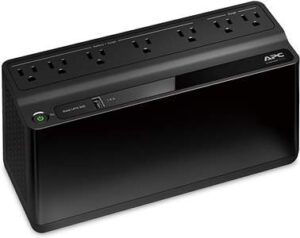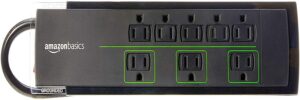
As much as you enjoy having access to all the electronic stuff while on road, it is important to make sure it remains functional.
If you are a regular user of recreational vehicles, a basic understanding of wiring and power system can help you from landing into trouble.
In this guide, we’ll be discussing everything that you need to know about RV low voltage problems and why they emerge! This can help you in making informed decisions if anything goes wrong. So, Let’s dig into it!
What are the RV Low Voltage Problems?
Despite the enormous advantages, RV still remains an automobile. Therefore, its’ low voltage may be due to many possible mechanical reasons.
It may happen due to loose connections or a bad breaker. A bad outlet or incompatible system can also result in low voltage problems. A bad inverter or RV battery can also be the culprit for low voltage.
When voltage significantly falls, the electronics start working with more pressure. Thus, it starts putting stress on appliances which can cause harm to these appliances.
To avoid any serious damage, you can use a voltage regulator or transformer. These gadgets can automatically sense voltage reduction. Thus, they will add 10% voltage to it and will save appliances from failure.
What Happens when Voltage Gone Down?
If not checked for a long time, RV low voltage problems can burn any electronics in your vehicle. Low voltage could be a problem in the campground you are camping.
Therefore it’s important to know that any voltage imbalance; either below 110 for a longer period or 106 for a shorter span may very well damage the electronics in your RV.
However, in some cases, the campground shows appropriate voltage but does not supply enough amps which can also turn out to be damaging for your RV. Thus, it’s important to get them checked.
Above all, your RV might have problems such as faulty connections, battery depletion or faulty wires, etc.
How Do You Fix Low Voltage Problems?
Are you looking for something to work with RV based inverter? As mentioned earlier, a quick fix is to add a transformer or voltage regulator. It senses low voltage falling anywhere below 107 volts and thus add up the additional voltage to make it normal.
Another possible method is to use a DC-DC booster to give the inverter a more stable supply of voltage from the battery. However, if you wish to keep only certain electronics running, you can install a small battery supply to the device.
Such as in the case of a refrigerator, you can add a battery on the furnace power so the furnace does not drain too much of the main battery. But you have to make some settings and find out the sweet pace where the furnace will run fine.
What is RV Low Voltage Alarm?
A low voltage alarm is a safety feature that starts beeping if the battery is too low. This indicates low voltage in RV.
To avoid landing in a helpless situation, the alarm is pretty important to let you know that battery is low. However, the detector itself would not work if the battery falls greatly below 12-volt power.
This propane alarm starts beeping very close to the point after which you would never want the battery to drain any further. Are you looking for rv low battery alarm? Have a look at this one!
Renogy Low Voltage Programmable Alarm
Apart from voltage, this device displays consumed power and battery capacity, etc. as well. Renowned for its high and authentic precision, it’s capable of storing the last tested data before the system shuts off.
By being universal, it comes with great compatibility with multiple RVs and detects both low and high voltages. See the latest price here.
What are Common RV Electrical Problems?
In the case of RV, finding electrical problems can be a very tough and complex process. Therefore, I have jotted down some of the most common problems which can emerge.
- In case of prolonging voltage issues, the fuses and wires can go hot as electrical appliances start working harder. Hence, this can shut off all electrical appliances.
- Another reason might be the loss of power. Your RV could have loose power to bank circuits resulting in the failure of appliances.
- It is even possible to have an issue with the battery. Sick engine batteries provide the same electrical problems.
- Moreover, the solenoid is a very common problem and gives rise to complications as well. Once you hit the AUX start button, the solenoid which connects two banks of batteries can go offline. Thus, resulting in a low voltage issue.
- Problem with the converter
- Bad ignition relay and stalling of the car can also indicate electrical problems
- If lights in your RV are not working properly, the circuit breaker or fuse near the battery is causing an issue.
- Loose wire at the breaker or loose power cord/collar can also be the reason.
- The battery could be poorly installed or either corroded.
Nothing has helped you find the issue yet? Read ahead to know about some more which might help you!
- A wrong connection to the battery can also cause the problem. Such as a loose cable connected to the terminal of the battery.
- Lastly, the Molex connector can also be the culprit. It’s because the connector starts producing issues in power connectivity when it gets wet.
All these preceding issues are the most common ones I have come across. In case your problem is still there, get your RV checked by a professional.
What is the RV Low Voltage Protection?
Very basic protection is to install a transformer or voltage regulator. It is because when the voltage goes down it starts putting stress on electrical appliances in RV.
By using a transformer/regulator, you can save all your appliances. These gadgets can detect fluctuation in voltage and will automatically add 10% into it to ensure the safety of appliances.
Low voltage results the appliances start working even harder, which is above their capacity and thus result in damage. In case you are looking to get these products, you can check the following items!
APC Battery Backup
This UPS battery backup is very easy to assemble and connect with the battery. Since the backup battery comes in the depleted form, it needs to be charged to provide backup.
This strong battery backup can last smoothly for 3 hours and even more depending upon the expenditure of the battery. The only drawback is that it has not displayed to check the remaining battery level. See the latest price here.
8 Outlet Surge Protector
This piece of equipment is well made to handle as many as 8 different plugs. It comes with an LED indicator, which displays if everything is well protected and grounded.
However, the light indicator is bright enough to light up the entire area, which might not be a favorable thing for many. See the latest price here.
Will Low Voltage Damage RV Air Conditioner?
Yes, it does cause damage to the air conditioner. Low voltage is equivalent to the increase in the current. If the current increases the maximum capacity over the motor rated current, it will cause too much heat which results in burning the appliance.
The minimum voltage for RV AC is 107V. If the specific range of voltage isn’t available, the motor continues to draw excess power and eventually gets heated. Thus, bring the appliance to the same result of getting burned.
The RV needs 30 amps for the startup inrush current for AC to work. However, it will also work on 20 amps later, but a startup is a basic concern.
Among all the electric appliances, an air conditioner is most prone and susceptible to damage due to low voltage. If you keep on running it with low voltage, it might function but would not work properly (i.e. would not do the job which it is intended to do)
You can also read The Fastest Way to Charge RV Batteries Here
To Sum it Up!
Don’t take chances with electric appliances, all that I can say! If you are not in a state to afford expensive repairs and replacement, seek professional help as it can save both your time and RV.



